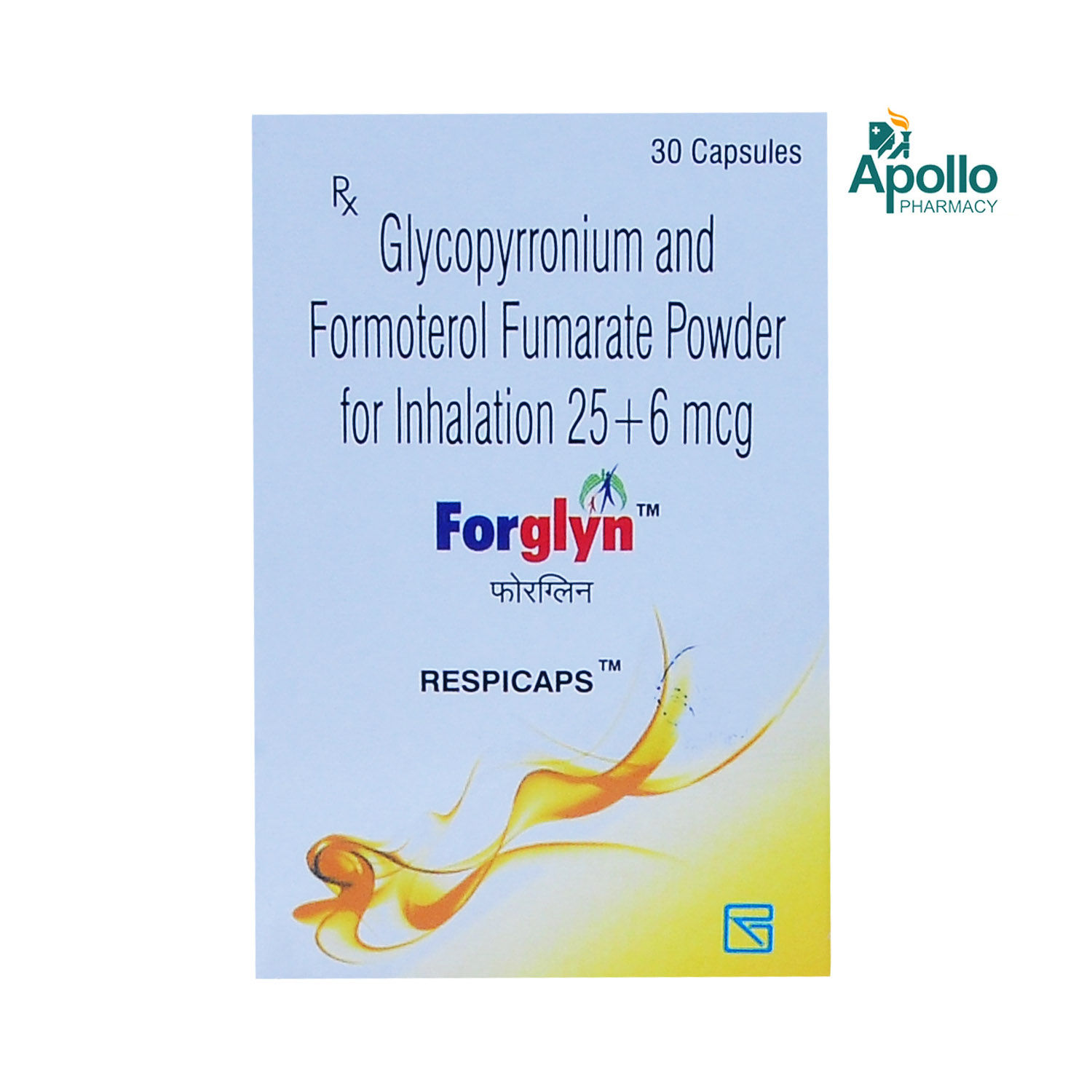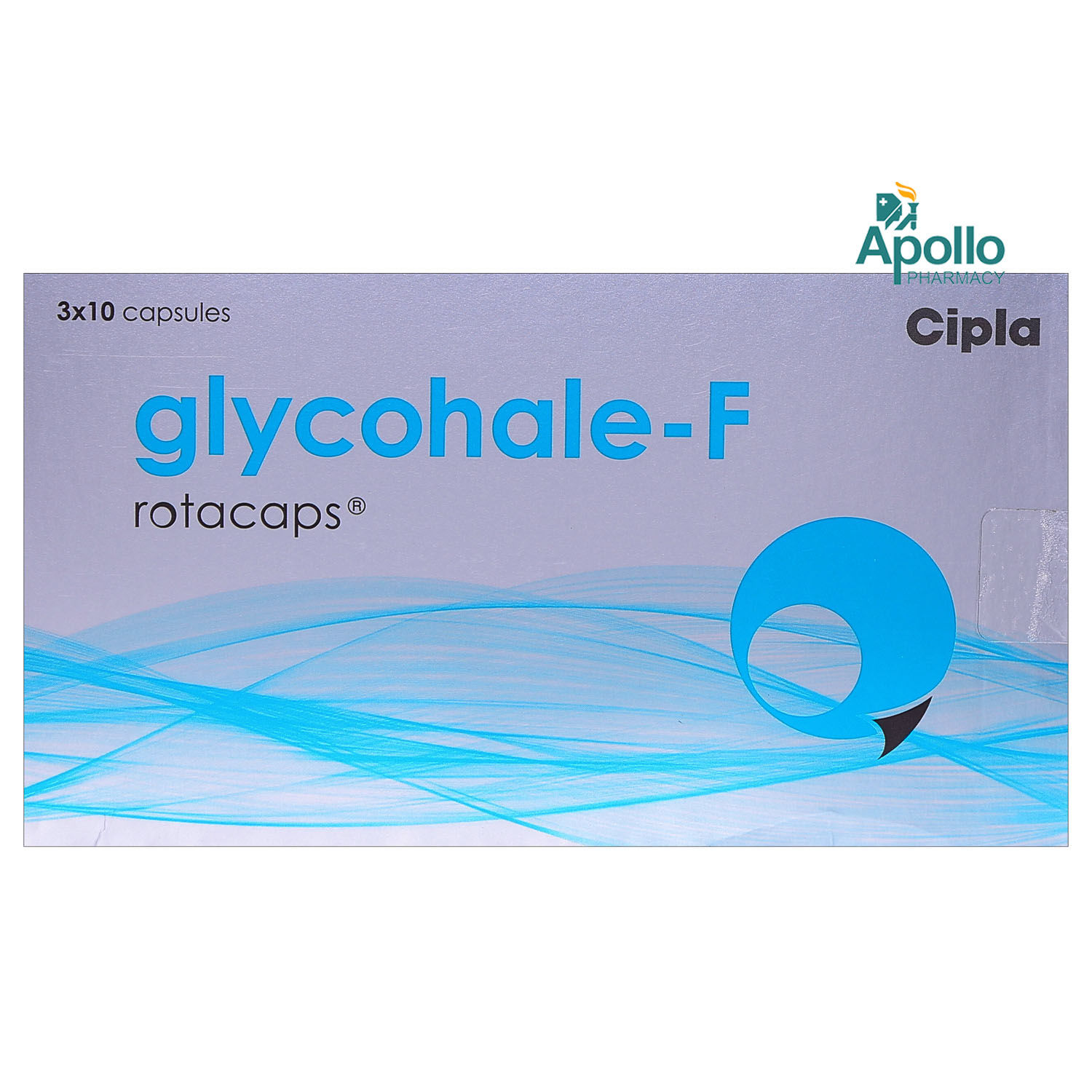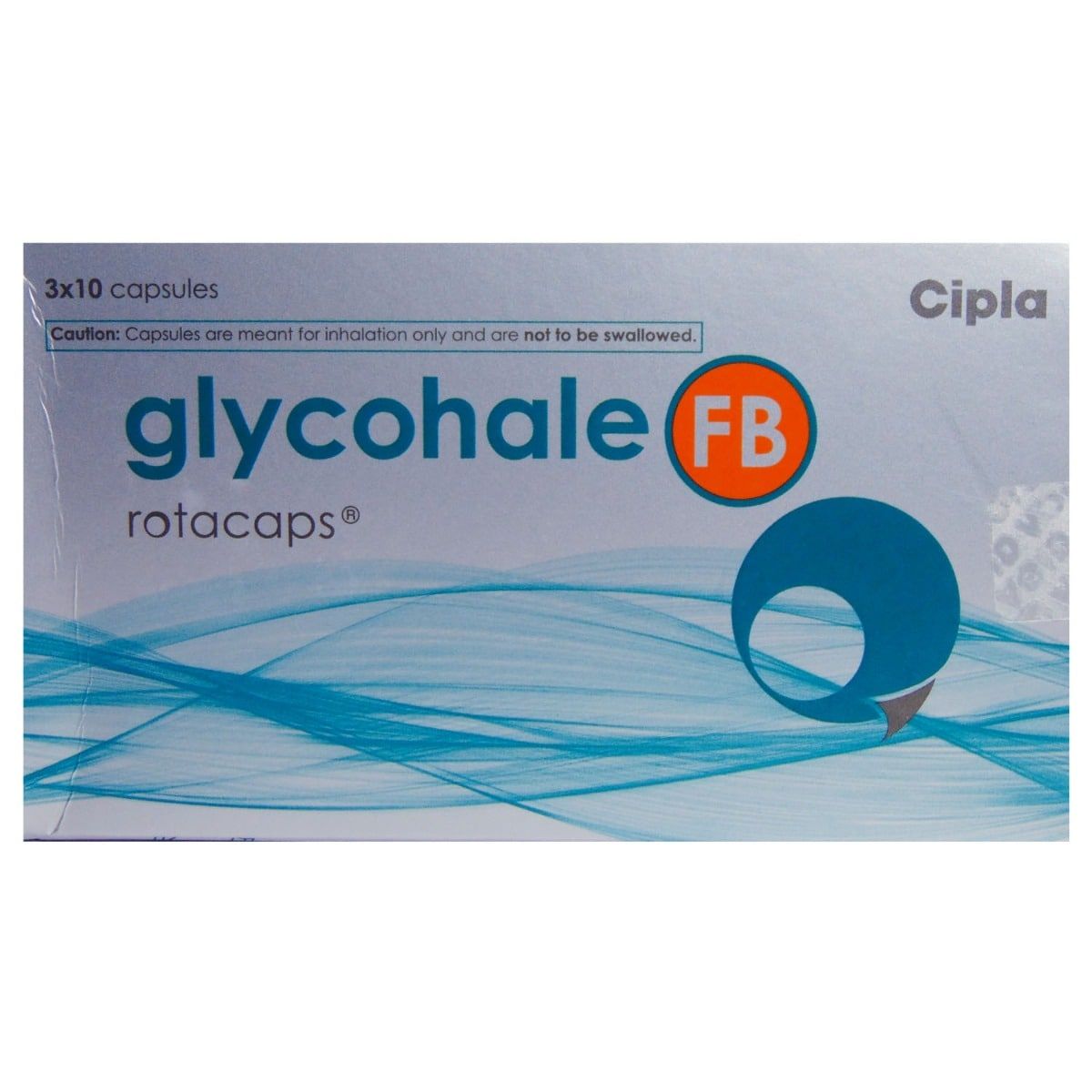GLYCOPYRRONIUM+FORMOTEROL FUMARATE DIHYDRATE
About GLYCOPYRRONIUM+FORMOTEROL FUMARATE DIHYDRATE
GLYCOPYRRONIUM+FORMOTEROL FUMARATE DIHYDRATE belongs to the group of medicines called bronchodilators indicated for long-term, maintenance treatment of Chronic Obstructive Pulmonary Disease (COPD). COPD is a group of lung diseases with emphysema (shortness of breath) and chronic bronchitis (inflammation of the bronchial tube lining). In COPD, the muscles around the airways tighten, making it difficult to breathe.
GLYCOPYRRONIUM+FORMOTEROL FUMARATE DIHYDRATE is a combination of two medicines, namely: Formoterol fumarate dihydrate (long-acting beta2-adrenergic agonist) and Glycopyrronium (anti-cholinergic). Formoterol fumarate dihydrate prevents tightening of the muscles in the airways, making it easier for the air to get in and out of the lungs. Glycopyrronium decreases the secretions in the airways. Together, GLYCOPYRRONIUM+FORMOTEROL FUMARATE DIHYDRATE provides relief from COPD.
Use GLYCOPYRRONIUM+FORMOTEROL FUMARATE DIHYDRATE as advised. You are recommended to use GLYCOPYRRONIUM+FORMOTEROL FUMARATE DIHYDRATE for as long as your doctor has prescribed it for you, depending on your medical condition. In some cases, you may experience certain common side effects, such as headache, nausea, dry mouth, chest pain, muscle cramps, dizziness, painful and frequent urination. Most of these side effects do not require medical attention and will resolve gradually over time. However, you are advised to talk to your doctor if you experience these side effects persistently.
Do not stop taking GLYCOPYRRONIUM+FORMOTEROL FUMARATE DIHYDRATE on your own as it might cause worsening of symptoms. Consult your doctor before taking GLYCOPYRRONIUM+FORMOTEROL FUMARATE DIHYDRATE if you are pregnant or breastfeeding. GLYCOPYRRONIUM+FORMOTEROL FUMARATE DIHYDRATE may cause dizziness, so drive with caution. Avoid consuming alcohol as it might cause increased dizziness. GLYCOPYRRONIUM+FORMOTEROL FUMARATE DIHYDRATE is not recommended for children below 18years as the safety and effectiveness have not been established. Keep your doctor informed about your health condition and the medicines you are taking to avoid unpleasant side effects.
Uses of GLYCOPYRRONIUM+FORMOTEROL FUMARATE DIHYDRATE
Medicinal Benefits
GLYCOPYRRONIUM+FORMOTEROL FUMARATE DIHYDRATE is a combination of two medicines, namely: Formoterol fumarate dihydrate and Glycopyrronium. GLYCOPYRRONIUM+FORMOTEROL FUMARATE DIHYDRATE belongs to the group of medicines called bronchodilators used to treat Chronic Obstructive Pulmonary Disease (COPD). Formoterol fumarate dihydrate is a long-acting beta-agonist that prevents the tightening of the muscles in the airways, making it easier for the air to get in and out of the lungs. Glycopyrronium is an anti-cholinergic that decreases the secretions in the airways. Together, GLYCOPYRRONIUM+FORMOTEROL FUMARATE DIHYDRATE provides relief from COPD.
Directions for Use
Storage
Side Effects of GLYCOPYRRONIUM+FORMOTEROL FUMARATE DIHYDRATE
- Headache
- Dizziness
- Dry mouth
- Nausea
- Painful and frequent urination
- Chest pain
- Muscle cramps
- Anxiety
Patients Concern
Disease/Condition Glossary
Chronic Obstructive Pulmonary Disease (COPD): It is a group of lung diseases with emphysema (shortness of breath) and chronic bronchitis (inflammation of the lining of bronchial tubes). The major cause of COPD is smoking tobacco. Also, long-term exposure to fumes and chemicals may also lead to COPD. The symptoms include chronic cough, shortness of breath or wheezing (whistle sound while breathing).
FAQs
GLYCOPYRRONIUM+FORMOTEROL FUMARATE DIHYDRATE contains Formoterol fumarate dihydrate and Glycopyrronium. Formoterol fumarate dihydrate relaxes and widens the openings in the airways, making it easier for the air to get in and out of the lungs. Glycopyrronium decreases the secretions in the airways. Together, GLYCOPYRRONIUM+FORMOTEROL FUMARATE DIHYDRATE provides relief from COPD.
GLYCOPYRRONIUM+FORMOTEROL FUMARATE DIHYDRATE is indicated for the maintenance treatment for COPD. It does not treat a sudden attack of wheezing or breathlessness. Use a rescue inhaler to treat sudden breathing problems.
Dry mouth could be a side-effect of GLYCOPYRRONIUM+FORMOTEROL FUMARATE DIHYDRATE. Limiting caffeine intake, avoiding smoking and mouthwashes containing alcohol, and drinking water regularly can help cope with dry mouth.
Do not stop taking GLYCOPYRRONIUM+FORMOTEROL FUMARATE DIHYDRATE on your own as it might cause worsening of symptoms. To treat your condition effectually, continue taking GLYCOPYRRONIUM+FORMOTEROL FUMARATE DIHYDRATE for as long as your doctor has prescribed it. Talk to your doctor if your breathing problems, wheezing, or cough do not improve or worsen.
GLYCOPYRRONIUM+FORMOTEROL FUMARATE DIHYDRATE is not indicated for the treatment of asthma as the safety and effectiveness of GLYCOPYRRONIUM+FORMOTEROL FUMARATE DIHYDRATE in patients with asthma have not been established. Consult your doctor if you have asthma.
Consult your doctor before taking GLYCOPYRRONIUM+FORMOTEROL FUMARATE DIHYDRATE if you are diabetic as it might sometimes raise blood sugar levels. Regular monitoring of blood glucose levels whilst taking GLYCOPYRRONIUM+FORMOTEROL FUMARATE DIHYDRATE is advised.






